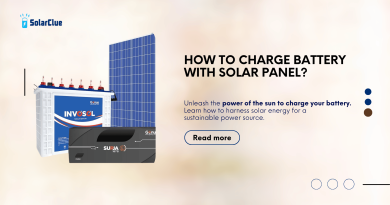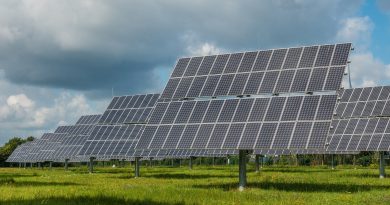Do Solar Panels Need Earthing?
Grounding is a critical aspect of solar panel installations, ensuring safety and protecting against electrical hazards. Proper grounding can prevent damage to the system and reduce the risk of electric shock or fire. This guide will explore the importance of grounding, the different methods available, and how to ensure compliance with regulations.
Table of Contents
- 1 The Importance of Grounding Solar Panels for Safety
- 1.0.1 Different Grounding Methods
- 1.0.2
- 1.0.3 The Role of Grounding in Lightning Protection
- 1.0.4 Government Regulations and Safety Standards for Grounding Solar Panels
- 1.0.5 The Impact of Grounding on System Performance and Efficiency
- 1.0.6 Common Grounding Issues and Solutions
- 1.0.7 The Future of Grounding Technology for Solar Panels
- 1.0.8 Case Studies of Grounding-Related Incidents and Their Prevention
- 1.0.9 Tips for Ensuring Proper Grounding of Your Solar Panel System
- 1.1 Frequently Asked Questions (FAQs)
- 1.2
The Importance of Grounding Solar Panels for Safety
Grounding serves several essential functions in a solar panel system:
| Function | Description |
|---|---|
| Electrical Safety | Provides a path for electrical faults, preventing electric shock and reducing the risk of fire. |
| Lightning Protection | Helps dissipate the energy from lightning strikes, protecting the system from damage. |
| System Stability | Ensures consistent electrical performance by reducing interference and fluctuations. |
| Regulatory Compliance | Grounding is often required by building codes and safety standards to ensure system integrity. |
Different Grounding Methods
There are several methods for grounding solar panels, each suited to different installation types:
| Grounding Method | Description | Suitability |
|---|---|---|
| Equipment Grounding Conductor (EGC) | A wire that connects all metal parts of the system to a common ground point. | Common in residential and commercial installations. |
| Grounding Rods | Metal rods driven into the ground, providing a direct connection to earth. | Suitable for larger installations, especially in areas prone to lightning. |
| Grounding Clamps | Devices that connect metal parts of the system to the grounding conductor. | Used in both residential and commercial systems for secure connections. |
| Grounding Plates | Flat metal plates buried in the ground, used in areas with high soil resistivity. | Ideal for installations where grounding rods are ineffective. |
The Role of Grounding in Lightning Protection
Grounding plays a crucial role in protecting solar panels from lightning strikes:
- Energy Dissipation: Grounding provides a path for lightning energy to safely dissipate into the earth, reducing the likelihood of damage to the panels and electrical components.
- Preventing Fires: By directing the high voltage from lightning strikes away from the solar panels and electrical systems, grounding helps prevent electrical fires.
- Compliance with Standards: Many local building codes require grounding for lightning protection, especially in areas with high lightning activity.
Government Regulations and Safety Standards for Grounding Solar Panels
Grounding is not just a safety precaution; it’s often mandated by law:
| Regulation/Standard | Description |
|---|---|
| National Electrical Code (NEC) | Requires grounding for all electrical systems, including solar panels, to ensure safety and system integrity. |
| IEC Standards | International standards that govern the grounding requirements for solar installations, ensuring global safety and compatibility. |
| Local Building Codes | Vary by region but often include specific grounding requirements for solar panel installations. |
| UL Certification | Ensures that grounding components, like clamps and rods, meet safety standards. |
The Impact of Grounding on System Performance and Efficiency
Proper grounding is essential for maintaining the performance and efficiency of a solar panel system:
- Noise Reduction: Grounding helps reduce electrical noise and interference, which can improve the overall efficiency of the system.
- System Longevity: By preventing electrical faults and managing static discharge, grounding can extend the lifespan of the solar panels and associated equipment.
- Energy Loss Prevention: Grounding prevents energy losses that can occur due to electrical imbalances or faults in the system.
Common Grounding Issues and Solutions
Grounding issues can arise in solar installations, but they can often be resolved with proper maintenance:
| Issue | Cause | Solution |
|---|---|---|
| Loose Connections | Over time, grounding connections can become loose, leading to ineffective grounding. | Regularly inspect and tighten all grounding connections. |
| Corrosion | Grounding components exposed to the elements can corrode, reducing their effectiveness. | Use corrosion-resistant materials and regularly check for signs of wear. |
| Improper Installation | Incorrect grounding methods or poor installation practices can compromise safety. | Ensure that installation is performed by qualified professionals following all relevant codes. |
| Soil Resistivity | High soil resistivity can reduce the effectiveness of grounding rods. | Use grounding plates or multiple rods to achieve adequate grounding. |
The Future of Grounding Technology for Solar Panels
As solar technology evolves, so too does the technology for grounding:
- Advanced Grounding Materials: New materials that resist corrosion and improve conductivity are being developed, enhancing grounding effectiveness.
- Smart Grounding Systems: These systems monitor grounding performance in real-time, alerting users to potential issues before they become serious problems.
- Integrated Grounding Solutions: Future solar panels may come with built-in grounding features, simplifying the installation process and improving safety.
Case Studies of Grounding-Related Incidents and Their Prevention
Understanding real-world incidents can help highlight the importance of proper grounding:
- Case Study 1: A residential solar installation in Florida experienced a lightning strike that damaged several panels. The grounding system, which was not properly connected, failed to protect the system, resulting in costly repairs.
- Case Study 2: In a commercial installation in Texas, loose grounding connections led to electrical faults that caused intermittent system failures. After a thorough inspection and tightening of connections, the system’s performance stabilized.
Tips for Ensuring Proper Grounding of Your Solar Panel System
To ensure your solar panel system is properly grounded, follow these tips:
1. Hire a Professional: Ensure that your system is installed by a qualified professional who understands the grounding requirements.
2. Use Quality Components: Invest in high-quality grounding materials that are resistant to corrosion and meet all relevant safety standards.
3. Regular Inspections: Conduct regular inspections of the grounding system, checking for loose connections, corrosion, and other potential issues.
4. Understand Local Regulations: Make sure your system complies with all local, national, and international grounding regulations and standards.
5. Consider Environmental Factors: In areas with high soil resistivity or frequent lightning activity, take extra precautions to ensure effective grounding.
Frequently Asked Questions (FAQs)
1: Why is grounding important for solar panels?
A: Grounding is crucial for safety, preventing electrical shocks, fires, and system damage by providing a path for electrical faults and lightning to safely dissipate into the earth.
2: What are the different methods of grounding solar panels?
A: Common methods include using an equipment grounding conductor (EGC), grounding rods, grounding clamps, and grounding plates. Each method is suitable for different types of installations.
3: How does grounding protect against lightning?
A: Grounding provides a safe path for the energy from a lightning strike to travel into the ground, reducing the risk of damage to the solar panel system.
4: Are there specific regulations for grounding solar panels?
A: Yes, grounding is often required by regulations such as the National Electrical Code (NEC), IEC standards, and local building codes to ensure safety and system integrity.
5: What are common grounding issues in solar installations?
A: Common issues include loose connections, corrosion, improper installation, and high soil resistivity, all of which can compromise the effectiveness of grounding.
6: Can improper grounding affect solar panel performance?
A: Yes, improper grounding can lead to electrical noise, interference, and energy losses, reducing the efficiency and lifespan of the solar panel system.
7: How often should I inspect my solar panel grounding system?
A: Regular inspections are recommended, ideally every 6 to 12 months, to ensure that all connections are secure and that there is no corrosion or damage.
8: What is the future of grounding technology for solar panels?
A: The future includes advancements in grounding materials, smart grounding systems that monitor performance, and integrated grounding solutions in solar panels.
Proper grounding is essential for the safety and efficiency of your solar panel system. By understanding the importance of grounding, choosing the right methods, and adhering to regulations, you can protect your investment and ensure reliable, long-term performance.
Here at SolarClue®, we offer a smart, practical, and “beautiful” solution. You will be answered for all the questions related to Solar.
We provide all kinds of brands that are the Best Solar panels in India.
If you are the one who is planning for the solar power system. Don’t hesitate to contact our team!
Looking forward to empowering you with solar energy, just like hundreds of our other clients!



